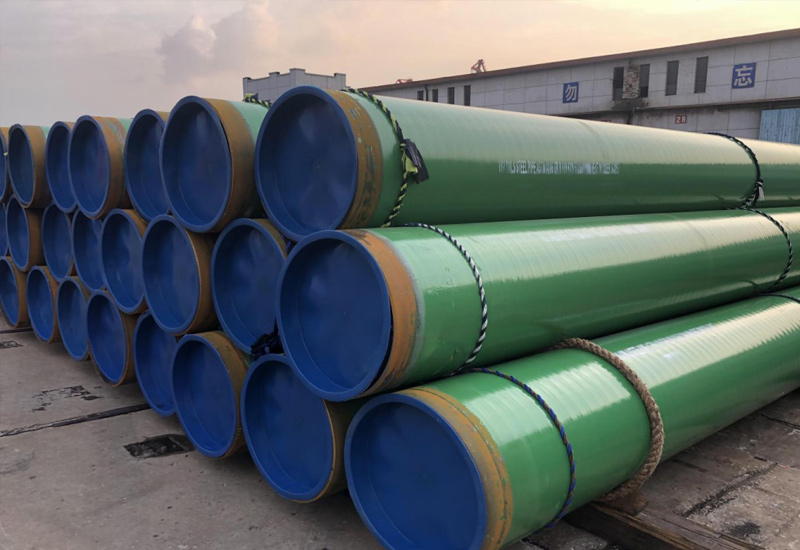HOT BLOG TAGS
ASTM A672
ASTM A672 Standard: Comprehensive Technical Specifications for Electric-Fusion-Welded Steel Pipe in Moderate Temperature High-Pressure Service
1. Standard Overview and Evolution
1.1 Definition and Scope
ASTM A672/A672M specifies requirements for electric-fusion-welded steel pipes designed for high-pressure service at moderate temperatures (-29°C to 427°C / -20°F to 800°F). Key applications include:
Power plant feedwater systems
Petrochemical reactor transfer lines
LNG boil-off gas (BOG) recovery pipelines
1.2 Historical Development
| Version | Key Updates |
| 1970s | Initial release (carbon steel, ≤50 MPa) |
| 1990s | Added high-strength grades (C70, C80) |
| 2010 | Mandated 100% RT for PSL2 pipes |
| 2019 | Extended temperature range; Digital twin recommendations |
2. Product Classification and Dimensions
2.1 Classification System
Strength Grades:
B60: Min. YS 415 MPa
C70: Min. YS 483 MPa
C80: Min. YS 552 MPa
Treatment Classes:
| Class | Heat Treatment | RT Examination | Hydro Test | Application |
| CL22 | Stress-relieved | Optional | Required | Non-cyclic loading |
| CL32 | Normalized | Mandatory | Required | Low-temp/impact environments |
| CL42 | Normalized + Tempered | Mandatory | Required | High-temp creep service |
2.2 Dimensional Requirements
| Parameter | Tolerance |
| Outside Diameter | ±0.5% of nominal OD |
| Out-of-Roundness | ≤1% (max-min diameter at any cross-section) |
| Straightness | ≤0.1% of length (max 3.2mm in 3m) |
| Wall Thickness | Min. thickness ≥ nominal WT – 0.3 mm |
| Weld Reinforcement | ≤3.2 mm internal/external |
Size Range:
OD: 405 mm (16″) to 1,524 mm (60″)
WT: 6 mm to 75 mm
3. Material and Performance Requirements
3.1 Chemical Composition (Grade C70, wt%)
| Element | Min | Max | Control Objective |
| C | – | 0.27 | Weldability |
| Mn | 0.85 | 1.20 | Strength |
| Si | 0.15 | 0.40 | Deoxidation |
| P | – | 0.025 | Toughness |
| S | – | 0.020 | HIC resistance |
| CEV | – | 0.43 | CE = C + Mn/6 + (Cr+Mo+V)/5 + (Ni+Cu)/15 |
3.2 Mechanical Properties
| Property | Grade C70 | Grade C80 | Test Standard |
| Yield Strength (Rt0.5) | ≥483 MPa | ≥552 MPa | ASTM A370 |
| Tensile Strength | 485-620 MPa | 620-750 MPa | ASTM A370 |
| Y/T Ratio | ≤0.93 | ≤0.93 | – |
| Elongation | ≥21% | ≥18% | ASTM A370 |
| Charpy V-Notch @ -29°C | ≥27 J (CL32) | ≥27 J (CL32) | ASTM A370 |
High-Temp Performance:
Creep rupture strength: ≥80 MPa @ 427°C/100,000 hrs
4. Welding and Testing Requirements
4.1 Welding Specifications
Weld Type: Double-sided full penetration
Filling Material: C70 grade; E8018-G
Heat Input Control: 35-45 kJ/cm
Limited of Repair Deep: ≤33% thickness of wall
4.2 Mandatory Testing
Destructive Tests:
Tensile test – 2 samples from each heat (ASTM A370)
Bend ability (180 degree) – max cracking ≤3 mm in side bend bend test
Impact test: Required for CL32/42/52
Non-Destructive Examination:
Radiographic Examination- 100% for CL32/42/52 as per ASME Sec V Art 2.
Hydro Test: Pressure ≥1.5×design pressure (max 90% YS), minimum 10s
Supplementary Tests:
Creep test: ≤0.1%/kh deformation @ 427 degree C
Holiday detection: 5.5 kV/mm sensitivity
5. Quality Control and Applications
5.1 Quality Assurance Process

Key Controls:
Weld heat input variation: ≤±5%
Standardizing: 900±20°C, holding time 2 min/mm
Hardness testing: Welding areas ≤ base material +30 HV
5.2 Engineering Case Studies
Ultra-Supercritical Power Plant (China, 2023):
Pipe: φ813×40 mm C70CL42
Service: 28.5 MPa/605°C
Innovation: Nb-Ti micro-alloying → 15% better creep strength
LNG Cryogenic Pipeline (Australia Ichthys Project):
Pipe: φ1016×32 mm B60CL32
Service: -162°C/12 MPa
Process: Cryogenic treatment (-196°C) → 52J impact value @ -196°C
6. Future Developments
| Challenge | Innovation Direction |
| Hydrogen Service | Al₂O₃ nano-coatings (H₂ permeability ≤0.3 mL/m²/day) |
| Digital Integration | Embedded fiber optic sensors (±5 με accuracy) |
| Green Manufacturing | EAF process (carbon footprint 1.8 tCO₂/t steel) |
Economic Impact:
20% wall thickness reduction vs. A106B → 1,500 ton steel saving per power plant
Failure rate: 0.07 incidents/1,000 km-year (83% lower than non-standard pipes)
Related Products
Share:
HOT TAGS
latest posts
- 3LPP coated pipe: anti-corrosion guard in high temperature and high pressure environment
- ASTM A53 LSAW Steel Pipe Selection Guide for Oil and Gas Transportation Pipelines
- API 5L LSAW Pipe: A Deep Dive into PSL1 vs. PSL2
- Steel Pipe Sizing Errors? DN vs. OD Explained for Buyers
- NDT for Pipe Welds: X-ray vs. Ultrasonic Testing









